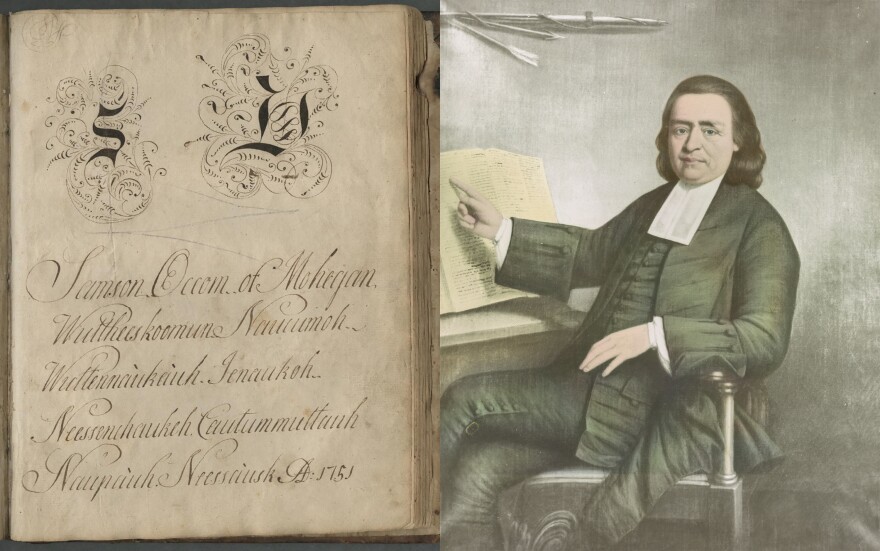This is the story of a betrayal that happened 200 years ago and a step today toward reconciliation.
Born in 1723, Samson Occom was the first Native American student of the Rev. Eleazar Wheelock. Occom was a gifted writer and orator, and he became a minister. In the 1760s, at Wheelock’s urging, Occom traveled to Europe to raise funds for what he believed would be a school in Connecticut for Native students.
But not long after his return, he learned that Wheelock diverted the funds to the founding of a school in New Hampshire that catered to the sons of white settlers. It became Dartmouth College.
The Mohegan Tribe long wanted the college to return a collection of Occom’s handwritten papers.
Dartmouth recently returned the documents during a repatriation ceremony in Connecticut.

At the ceremony, members of the Mohegan Tribe and Dartmouth officials sat under an open tent.
Sarah Harris, vice chairwoman of the Tribal Council and a Dartmouth graduate, spoke to those gathered. She said for decades the Mohegans had asked Dartmouth to honor Occom’s role in the school’s history.
“Hundreds of years of not telling Occom’s story has denied both Native and non-Native students and the larger community the truth of Dartmouth’s founding,” she said.

As Dartmouth President Philip Hanlon prepared to repatriate the documents, he read from a 1771 letter Occom wrote to Wheelock about the betrayal.
“Your having so many white scholars and so few or no Indian scholars gives me great discouragement. And now I am afraid we shall be deemed as liars and deceivers in Europe.”
Occom’s papers include letters, diaries, sermons and a page of indigenous herbal remedies. He wrote in five languages: Mohegan, English, Greek, Latin and Hebrew. Dartmouth experts say the collection is one of the earliest examples of written Mohegan language.
Hanlon acknowledged it took too long for the papers to return to Mohegan land.
“But they are here now, accompanied by the spirit of Samson Occom that lives with them,” he said.
Jane Fawcett got emotional as she described what the day meant to her. Fawcett is a Mohegan “nonner” — or honored grandmother — and grew up on Occom's homestead.

“Samson Occom was very important to me,” she said. “He inspired me to go to college. … I'm sorry; I don't usually break down.”
For two centuries, Dartmouth did little to honor its founding purpose. Fewer than 20 Native American students got Dartmouth degrees between 1769 and 1969. In 1970, the school began actively recruiting. About 1,200 Native Americans have graduated since.
Mohegan leaders say the ceremony marks the start of a different relationship with Dartmouth, now that Occom’s papers are back home.






